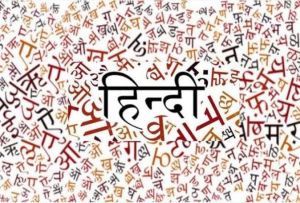Difference between revisions of "Language/Hindi/Vocabulary/Address"
< Language | Hindi | Vocabulary
Jump to navigation
Jump to search
m (Quick edit) |
m (Quick edit) |
||
| Line 1: | Line 1: | ||
[[File:Hindi-Language-PolyglotClub.jpg|thumb]] | [[File:Hindi-Language-PolyglotClub.jpg|thumb]] | ||
<div | <div class="pg_page_title"> What’s Your Address?</div> | ||
Nope, we’re not gonna write you a letter. It’s all about addressing people. There are three types of addresses in Hindi, three words for the simple English “you”. Which of the three you use depends on your relationship with, or the status of, the person you wish to address. | Nope, we’re not gonna write you a letter. It’s all about addressing people. There are three types of addresses in Hindi, three words for the simple English “you”. Which of the three you use depends on your relationship with, or the status of, the person you wish to address. | ||
*tū – OK among very close relatives, friends and lovers, otherwise it’s insulting. It’s sometimes deliberately used to demean someome. | *tū – OK among very close relatives, friends and lovers, otherwise it’s insulting. It’s sometimes deliberately used to demean someome. | ||
*tum – Used among friends, family members and good acquaintances. | *tum – Used among friends, family members and good acquaintances. | ||
*āp – the most polite form of address, for people of high standing, strangers, and in formal situations. | *āp – the most polite form of address, for people of high standing, strangers, and in formal situations. | ||
Similarly, the possessive pronoun “your” has three forms: terā/terī, tumhārā/tumhārī and āpkā/āpkī. | Similarly, the possessive pronoun “your” has three forms: terā/terī, tumhārā/tumhārī and āpkā/āpkī. | ||
| Line 15: | Line 13: | ||
Grammatically, the pronouns are treated like adjectives, so their gender would have to be adjusted to the gender of the associated noun. | Grammatically, the pronouns are treated like adjectives, so their gender would have to be adjusted to the gender of the associated noun. | ||
== | <span link>Finish this lesson and explore these related pages:</span> [[Language/Hindi/Vocabulary/Portuguese-Loan-Words-in-Hindi|Portuguese Loan Words in Hindi]], [[Language/Hindi/Vocabulary/Animal-Sounds|Animal Sounds]], [[Language/Hindi/Vocabulary/Herbs-and-Spices|Herbs and Spices]] & [[Language/Hindi/Vocabulary/Clothes|Clothes]]. | ||
==Other Lessons== | |||
* [[Language/Hindi/Vocabulary/Ocean|Ocean]] | * [[Language/Hindi/Vocabulary/Ocean|Ocean]] | ||
* [[Language/Hindi/Vocabulary/Hindi-loan-words-in-English|Hindi loan words in English]] | * [[Language/Hindi/Vocabulary/Hindi-loan-words-in-English|Hindi loan words in English]] | ||
| Line 30: | Line 29: | ||
* [[Language/Hindi/Vocabulary/Slang|Slang]] | * [[Language/Hindi/Vocabulary/Slang|Slang]] | ||
* [[Language/Hindi/Vocabulary/Asking-Directions|Asking Directions]] | * [[Language/Hindi/Vocabulary/Asking-Directions|Asking Directions]] | ||
<span links></span> | |||
Latest revision as of 13:52, 27 March 2023
What’s Your Address?
Nope, we’re not gonna write you a letter. It’s all about addressing people. There are three types of addresses in Hindi, three words for the simple English “you”. Which of the three you use depends on your relationship with, or the status of, the person you wish to address.
- tū – OK among very close relatives, friends and lovers, otherwise it’s insulting. It’s sometimes deliberately used to demean someome.
- tum – Used among friends, family members and good acquaintances.
- āp – the most polite form of address, for people of high standing, strangers, and in formal situations.
Similarly, the possessive pronoun “your” has three forms: terā/terī, tumhārā/tumhārī and āpkā/āpkī.
Grammatically, the pronouns are treated like adjectives, so their gender would have to be adjusted to the gender of the associated noun.
Finish this lesson and explore these related pages: Portuguese Loan Words in Hindi, Animal Sounds, Herbs and Spices & Clothes.
Other Lessons[edit | edit source]
- Ocean
- Hindi loan words in English
- Turkish Loan Words in Hindi
- Greetings
- Bird
- Bedroom
- Means of Transport
- Desserts
- Countries (deshon देशों)
- City
- Feelings and Emotions
- How to Say Good Bye
- Slang
- Asking Directions
